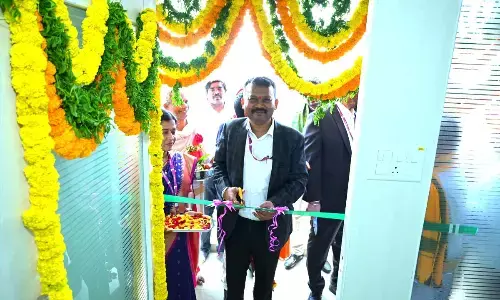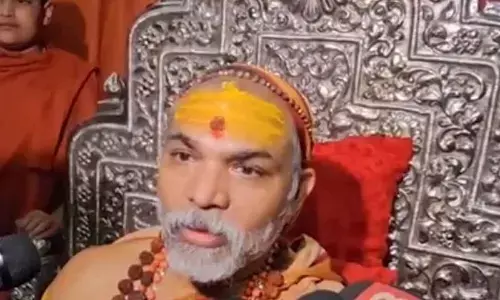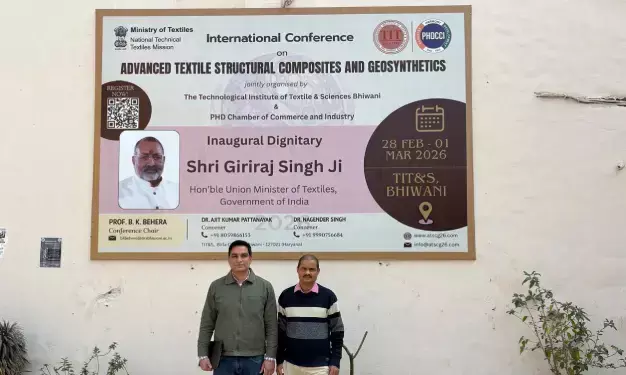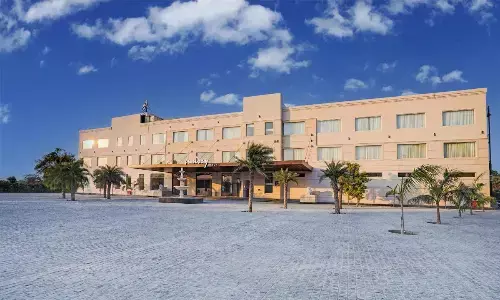To be a nation for the differently abled
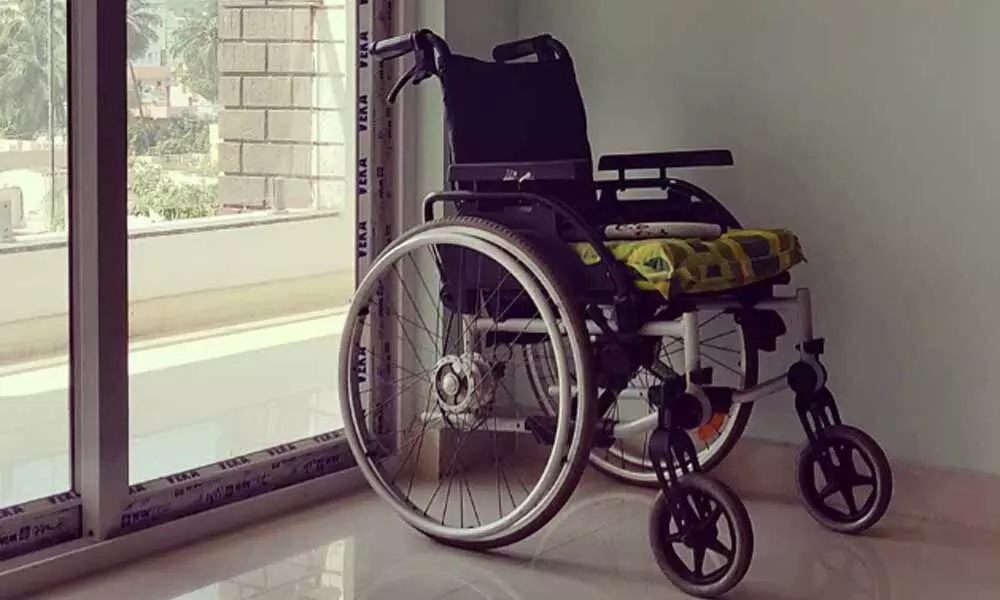
Stephen Hawking, the world-renowned Physicist whose disability never limited his brilliance was however acutely aware of the limitations imposed by disability and the attitudinal and physical barriers. "Addressing these barriers will unlock the potential of so many people with so much to contribute to the world," Hawking's clarion call for a more inclusive society remains unrealised in the Indian context where 26.8 million people with disabilities are clearly at a disadvantage despite legislation and ambitious programmes
The human spirit is one of ability, perseverance and courage. That is why disability inherited or accidental has failed to curb the brilliance of musicians, academics, authors, sportspersons and achievers from different fields who have left behind footprints on the sands of time. Stephen Hawking, the world renowned Physicist whose disability never limited his brilliance was however acutely aware of the limitations imposed by disability and the attitudinal and physical barriers that make them vulnerable. "Addressing these barriers will unlock the potential of so many people with so much to contribute to the world" Hawking 's clarion call for a more inclusive society remains unrealised in the Indian context where 26. 8 million people with disabilities are clearly at a disadvantage despite legislation and ambitious programmes that remain high on rhetoric and low on action. A nation that has its roots in the Vedic tradition that reveres life, has sage Ashtavakra (one with eight deformities) as the epitome of knowledge and equality of all humans without discrimination at the core of its philosophy has unfortunately not been able to forge an equal and inclusive society where the disabled are merely differently abled and just as entitled to enjoy the same rights and facilities as other citizens.
The attitude towards the disabled is the biggest disability afflicting lawmakers, enforcers and common citizens. Having special places for people with special needs is a sort of racism and being able to share the whole word with them is what inclusion is all about according to Pune based Ekansh Trust which has been working tirelessly to create awareness about barrier free access. "We almost never see children with disabilities and special needs at malls, parks, cinema theatres and birthday parties. Why? I know they enjoy everything that normal children do, maybe differently, but definitely as much. Why do parents of these special children rather they live in isolation or confinement than bring them out to face the World? What do these people fear? The answer is' us' and I think that is a shame", says Anita Iyer Narayan, Founder and Managing Trustee of Ekansh. Anita recalls the horrifying experience of her grandmother who had a bout of asthma and had to be rushed to the hospital. She had to be brought down three floors on a make shift stretcher in full view of the residents as her wheel chair along with the attendant wouldn't fit into the elevator. The experience led her to conduct a competition in "Barrier Free Design" for students of architecture. This was followed by sessions that covered a vast spectrum taking her to both slums and corporate houses spreading awareness to muster acceptance and sensitivity necessary for inclusivity.
The disabled in the country face accessibility issues through a hostile environment, inadequate infrastructure and a public transport system that robs them of the dignity that everybody else takes for granted. Trying to accomplish seemingly simple tasks in a wheel chair like boarding a train, going to work, operating an ATM or visiting a government building in a single day, may bring home the value of access like no other to those unaware of the travails of the disabled. The intent of the government has been good but unfortunately implementation hasn't kept pace. Rights of Persons with Disabilities Act was passed by both houses of Parliament on 16th December 2016 for empowering persons with disabilities (PWD) with dignity, non discrimination, full and effective participation and inclusion in society. This was to bring a paradigm shift in thinking about disability from a social welfare concern to a human rights issue. The Accessible India Campaign or' Sugamya Bharat Abhiyan' launched earlier on December3, 2015 identified 1707 buildings across various cities which were to be retro-fitted after conducting accessibility audits and 25% vehicles in the public transport system made disabled friendly. Although directives are being issued to speed up works, the March 2020 deadline has arrived with results are far below the set target.
"Our nation is an ocean of inaccessibility with pockets of accessibility" says Sai Padma, founder President, Global Aid (Global Ability in Disability) a non –profit organization based in Vishakhapatnam. Her organisation has been working tirelessly to create an accessible world for persons with disabilities for over a decade now. Afflicted with Polio when she was one and a half months old, Padma's incredible accomplishments include a diploma in classical music, M.Com, CA, MBA and Law. She has completed a course on accessibility awareness abroad and witnessed first -hand the empathy towards the disabled in several countries outside India."The American Law with respect to disabilities is very powerful meting out serious punishment when stipulations for disabled are sidestepped. In Australia drivers assisting people with disabilities are given credit points as encouragement. Small places like Taiwan and Macau are very considerate about people with disability and have a large number of accessible cabs. The disabled here can live with freedom, dignity and respect" Padma adds. Recalling her travails when the Hudhud cyclone hit Vizag some years ago, Padma says she was trapped inside her house for more than two and a half hours as huge trees blocked the entrance and there was no way for her to get out in a wheel chair. "Smart cities have to go beyond merely providing Wi -fi connectivity. What is smart about a city that cannot cater to the needs of every citizen? Are cities geared to meet requirements of pregnant women, senior citizens and those suffering from knee pain or arthritis, who have problems similar to the disabled as far as access to public spaces are concerned?' questions Padma.
Supriya Muddusetti who is in a wheel chair after an unfortunate accident in 2002 restricted her mobility, lives in Houston, USA but spends almost four months a year in Hyderabad. She is pained by the fact that people with disability are rarely seen in public spaces and those who dare to venture out are either looked at with sympathy or met with rude stares that are both disconcerting and de-moralizing. The laws in the United States ensure that the society there is inclusive and she goes on holidays, moves freely in public spaces and is able to handle many chores independently in contrast to her time in the city she grew up in. "I can't find a single bank with a ramp and have no access to an ATM or a locker here. I visit a Saibaba temple regularly but return without seeing the idol as the only way to get there is being lifted physically. Many monuments and eating places do not have ramps and there are no cabs designed for people with disability unlike in the US where one can rent even self driven cars. I make my own travel arrangements and have ramps (of 20ft, 10ft, 6 and a half ft and 2 and a half ft) in my car which I use depending on the place I am visiting. How many people can do this? It's time the government took measures for barrier free access in a happening city like Hyderabad" she demands.
Roads, pathways, buildings and infrastructure in our country are in no state to cater to the requirements of citizens normal or disabled, concurs Dr. A.V. Guruva Reddy Internationally recognized Orthopedic surgeon, and Knee replacement expert. He laments the fact that there are no proper ramps, elevators aren't big enough and toilets for the disabled in many hospitals lack crucial grab bars. "The Motability( arrangement for mobility) scheme in the United Kingdom has helped many disabled people lead a happy life. Here even an eminent and powerful politician like Late. Dr. Jaipal Reddy had to return from a meeting after he fell down at the venue which lacked accessibility. I myself contemplated leaving the country and moving to Australia 10 years ago when my daughter underwent a hip surgery but thankfully she recovered completely. As of now, there is no way the disabled can be independent in our country as the entire ecosystem nurtures dependence. Like compulsory fire clearance, accessibility should be made mandatory for all new constructions public or private, and incentives given to those assisting the disabled" avers Dr. Reddy.
Stephen Hawking's wish to see the Taj Mahal remained unfulfilled when he visited India 19 years ago but this was apparently one reason why many historic monuments in the country were made disabled friendly. The story of a recent initiative by an NGO Arushi and a bureaucrat from Bhopal who asked his staff members to sit in wheel chairs to experience the discomfort faced by the disabled before turning the Sanchi Stupa into a barrier free zone is truly inspiring and heartwarming. Wheel chair accessibility, information plaques in Braille, tactile walkways, beepers and a Braille map today allow those with disabilities to experience the splendour of the monument like everyone else. One hopes the day is not far off when barrier free access will uphold the ideals of humanity and equality that India stands for and "Sarve Bhavantu Sukhinah" (May all be happy) becomes a cherished experience.
I can't find a single bank with a ramp and have no access to an ATM or a locker here. I visit a Saibaba temple regularly but return without seeing the idol as the only way to get there is being lifted physically. Many monuments and eating places do not have ramps and there are no cabs designed for people with disability unlike in the US where one can rent even self driven cars. I make my own travel arrangements and have ramps (of 20ft, 10ft, 6 and a half ft and 2 and a half ft) in my car, which I use depending on the place I am visiting. How many people can do this?
- Supriya Muddusetti
Our nation is an ocean of inaccessibility with pockets of accessibility
- Sai Padma,
founder President, Global Aid
The Accessible India Campaign or' Sugamya Bharat Abhiyan' launched earlier on December 3, 2015 identified 1707 buildings across various cities, which were to be retro-fitted after conducting accessibility audits and 25% vehicles in the public transport system was to be made disabled friendly. Although directives are being issued to speed up works, the March 2020 deadline has arrived with results far below the set target
10 changes that can make a difference
Make accessibility compulsory like fire safety for all buildings
Have stringent punishment for non-compliance as in the United States of America
Follow the Bengaluru model and have specially designed cabs for the disabled in all cities
Have short duration accessibility courses for citizens
Make parks, public spaces, theatres, hospitals, educational institutions, banks and public transport accessible
Conduct awareness programmes in educational institutions,government offices and private firms to bring empathy.
Ensure that targets under Sugamya Bharat Abhiyan are met through accountability in implementation.
Provide incentives to those who help persons with disability
Have persons with disability on committees recommending changes for accessibility
Include inclusivity as a lesson in school curriculum


